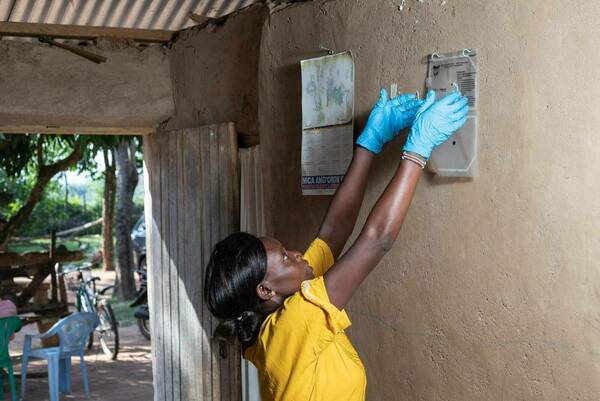Letter from the Director, Eck Institute for Global Health
Advancing Global Health: A Call to Action

Since its founding 15 years ago, the University of Notre Dame’s Eck Institute for Global Health has been driven by the fundamental belief that health is a human right, not a privilege. Rooted in our University's mission that commits to defending the dignity of every human person, this belief compels us to lead efforts in advancing health standards and reducing disparities that disproportionately affect the poor and marginalized. We fulfill this mission through cutting-edge research and comprehensive global health education and training at both undergraduate and graduate levels.
Our work is more critical than ever in today’s global health landscape.
We remain deeply engaged with partners on and off campus to:
- Prevent unnecessary mortality from malaria, tuberculosis, and other infectious diseases
- Ensure mothers and infants receive lifesaving care during pregnancy, delivery, and postpartum
- Address the rising burden of cancer and non-communicable diseases among disadvantaged populations
- Leverage innovative solutions to mitigate health security risks and seek to prevent future pandemics
At the same time, we remain steadfast in our commitment to educating the next generation of global health leaders—leaders who uphold the dignity of every person, foster healthier communities, and recognize that the well-being of one is the responsibility of all.
Father Robert A. Dowd, Notre Dame’s President, urges all of us to be bridge-builders, uniting people and taking action in a world that urgently needs solutions. The Eck Institute community has enthusiastically embraced this call. As global health bridge-builders, we will:
- Deepen our focus on the health needs of the poor and marginalized
- Strengthen partnerships and multidisciplinary collaborations
- Remain unwavering in our advocacy to prevent suffering and disease
- Continue to listen, learn, and teach, bringing people together for a healthier, more equitable world
My colleagues at the Eck Institute and I invite you to join us in doing the same, whether on campus, in your community, or around the globe.
Bernard Nahlen
Director, Eck Institute for Global Health
Originally published by at globalhealth.nd.edu on March 14, 2025.
Latest Research
- NSF Cyber SMART’s fall meeting shapes fifth year of project, legacy and future plans, and adds new memberThe U.S. National Science Foundation (NSF) Cyber SMART center gathered for its fall meeting on the University of Notre Dame campus this September. The meeting served as a checkpoint with progress reports and new projects from research leads and students…
- Slavic and Eurasian studies professor wins Humboldt fellowship to research how Russia’s religious past shapes its presentWhen Russia invaded Ukraine on Feb. 24, 2022, Sean Griffin realized his second book needed a new title. Griffin, an associate professor in the University of Notre Dame’s Department of…
- Notre Dame’s R.I.S.E. AI Conference builds interdisciplinary collaboration to inform human-centered artificial intelligenceAs artificial intelligence (AI) transforms nearly every sector of society — from healthcare and education to governance and global development — a critical question emerges: How can we conscientiously design and deploy these powerful technologies to positively impact society? This…
- University of Notre Dame joins the Global Coalition of Ukrainian StudiesThe University of Notre Dame has joined the Global Coalition of Ukrainian Studies after signing a Memorandum of Cooperation (MOC), formalized on September 24, 2025, at the Ukrainian Institute of America in New York City. Notre Dame joined four other American…
- The University of Notre Dame’s Mendoza College of Business and Industry Labs team up to inspire national security manufacturing competitiveness in the regionThe South Bend - Elkhart Region is full of manufacturing companies that are poised to grow, and Executive Master of Business Administration (EMBA) and Master of Business Administration (MBA) students at the University of Notre Dame are finding innovative ways to contribute to that growth. Earlier…
- Notre Dame research informs WHO conditional recommendation for spatial repellents in malaria vector controlThe World Health Organization (WHO) recently announced a “conditional recommendation” for spatial emanators, also known as “spatial repellents,” in the fight against malaria. This key determination was informed by spatial repellent studies that included the Advancing Evidence for the Global Implementation of Spatial Repellents (AEGIS) Project in Kenya, led by the University of Notre Dame and funded by Unitaid. The findings from this particular study were recently published in The Lancet.













